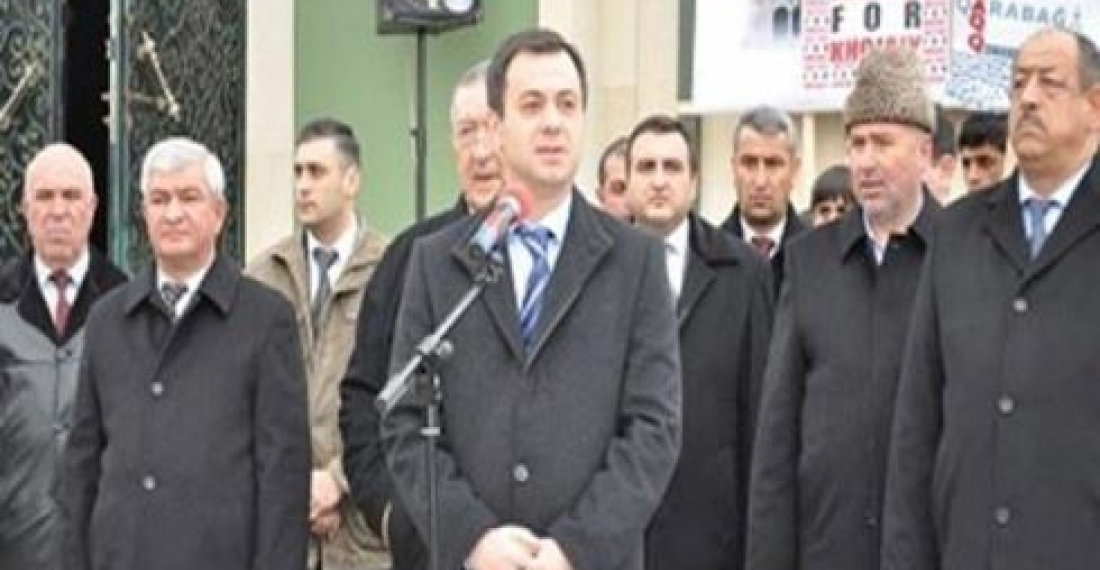The State Committee for Work with Religious Communities in Azerbaijan has initiated a campaign entitled "Towards Karabakh - the voice of Allah and our truth" along the line of contact separating Armenian and Azerbaijani forces in the Nagorno-Karabakh conflict zone.
The Chairman of the State Committee, Elshad Iskanderov led representatives of the State Committee, members of the "Nagorno Karabakh's Azerbaijani Community" Public Union, intellectuals, parliamentarians, theologians, local believers and residents yesterday at Friday Prayers after "Azan" or call to prayers, from Jumshud Mosque in the village of Chemenli, which is situated only three kilometers away from the line of contact seperating Armenian and Azerbaijani forces in the Nagorno-Karabakh conflict zone. Those present expressed hope that soon the call for prayer would resound once more from the Juma Mosque in Agdam. The town of Agdam is currently under Armenian control.
Earlier the gathering visited the monument of Heydar Aliyev and the monument of martyrs in Guzanli settlement. Among those attending were representatives of Embassies of Islamic countries in Azerbaijan.
source: commonspace.eu
Photo: Elshad Isganderov, Chairman of the Azerbaijani State Committee for Work with Religiuous Communities at the launch of the campaign "Towards Karabakh - the voice of Allah and our Truth" in the Karabakh conflict zone on 22 February 2013.







